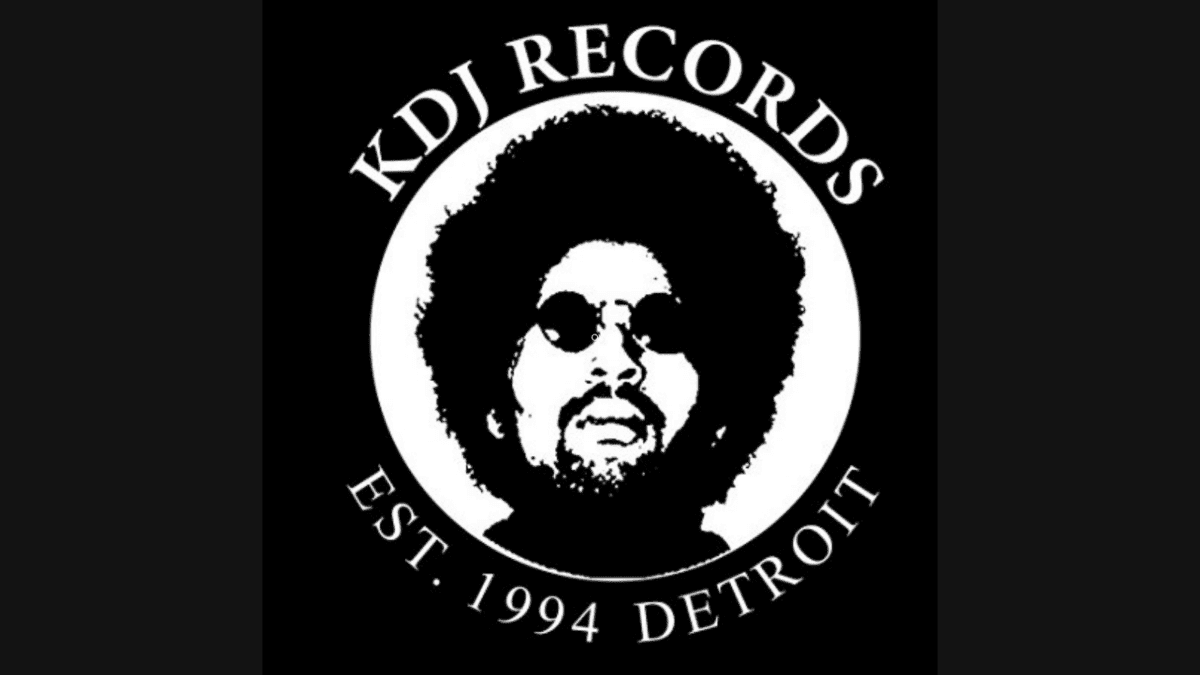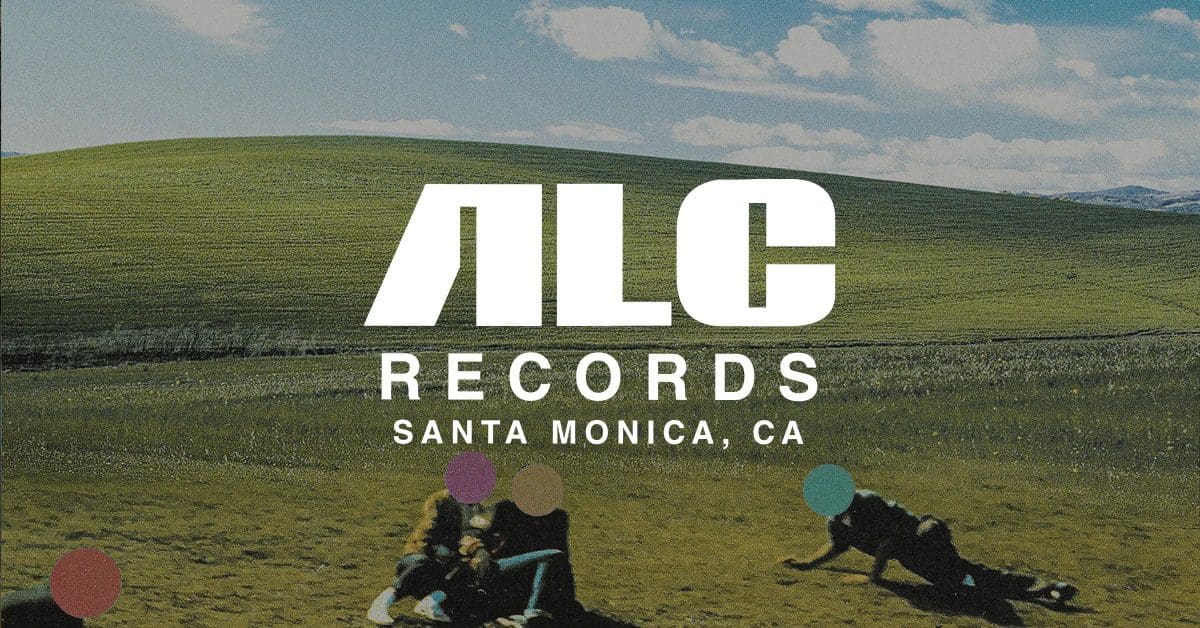Everybody has been exposed to Music Labels in one way or another. Maybe you are in a contract with them as a songwriter or producer, or you simply hear their repertoire when listening to music. Maybe you are looking for a record deal with a British music label. In this article, I am going to tell you about the biggest labels in the industry, which control around 70% of the music market worldwide. I will also explore the equally exciting world of independent music labels, or ‘indies’ for short. I will explain what music labels are, the biggest music labels, their relevance in today’s music market, and how you can find the top music label for your musical endeavors. Let’s jump right in!

What Is A Music Label?
Generally speaking, a music label is a company responsible for the manufacturing, distribution, and promotion of recordings of their affiliated artists. Their main objective is to sell the artist’s brand, and the products these artists create (mainly music released via streaming or as a physical release).
The expression ‘record label’ actually comes from the label at the center of a vinyl record, which prominently displayed the record manufacturer’s name along with the title and artist.
Traditionally, music record labels functioned as gatekeepers between the artist and the possibility of the artist reaching their audience. Back in the day, record manufacturing was necessary and expensive, and records were only sold in stores. Artists relied on labels to do almost everything, including broadening their audience, marketing their albums, and promoting their singles.
The Difference Between “Major” And “Indie” Music Labels

What we most likely think about when we hear the terms ‘Major’ and ‘Indie’ is either an artist or a record label. Both ‘Major’ and ‘Indie’ are terms that can be used in conjunction with publishers, distributors, and almost any other entity in the music business. Furthermore, we all know that ‘Indie’ has even become its own genre.
1. Size
The big difference we all think about when comparing a major label and an independent label is size – and it is true. The three major players in the music industry right now control about 70% of the music market globally. Although that is just an estimation, it is quite significant. Think about it – for every 2 major releases you listen to, you only listen to 1 indie release (approximately).
2. Structure
Another difference is the varying corporate structure. Often, Indie labels are founded by artists – that way, they have the artist at the center of their efforts and are believed to be more artist-friendly.
3. Style
A third difference is that independent labels almost always release non-mainstream music. Even though, in some instances the genre borders grow closer and closer together.
For every music label, major or indie, the main function is the same, though. They take care of the copyright of sound and video recordings. They do that by producing, manufacturing, distributing, marketing, promoting, and enforcing copyrights for their respective artists.
Major Music Labels
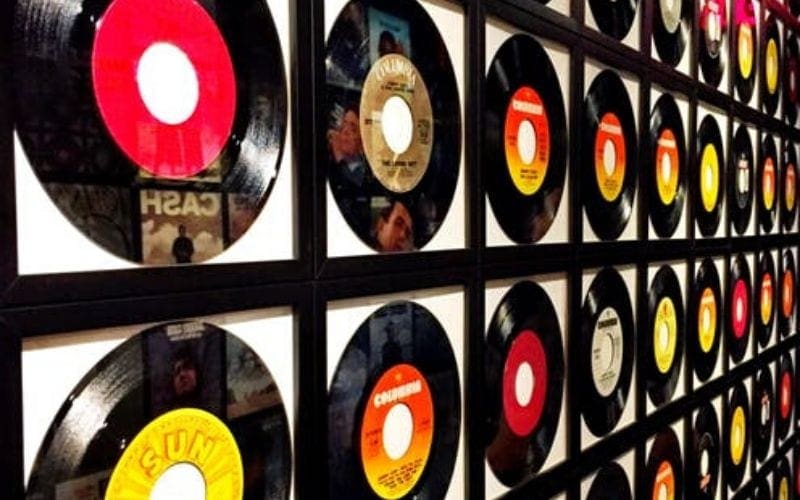
Major most often refers to a record label. These record labels almost always are part of larger conglomerate corporations that consist of many record labels.
From 1988 to 2020, a lot has changed in the Major Music label world. In 1988, there were six major record labels. These were by far the biggest music labels around, and that is why they were called “The Big Six”.
The Big Six were:
- Warner Music Group
- EMI
- Sony Music
- BMG
- Universal Music Group
- PolyGram
The major label landscape is subject to constant change due to mergers, acquisitions, and restructuring. Today, there are only three major labels. The so-called ‘big three’ major record labels are Universal Music Group, Sony Music Entertainment, and Warner Music Group. All of these companies own many other labels and form a label family that way.
The Big 3 Music Labels Of Today Are:
- Universal Music Group
- Sony Music Entertainment
- Warner Music Group
Each of these three major labels has a plethora of record labels under their umbrella.
Universal Music Group (UMG) is owned by a French media conglomerate (90%) and a Chinese tech company Tencent (10%). Within the hundreds of labels in their roster are some of the most iconic and influential in the world, including Abbey Road Studios, Capitol Records, and Deutsche Grammophon, to name a few.
Sony Music Entertainment is owned completely by Sony Corporation in Japan. Sony Music Entertainment also owns a long list of prestigious record labels, such as Columbia Records, RCA Records, and Epic Records.
Warner Music Group (WMG) is the third label group of the Big Three. WMG’s parent company is a privately held multinational industrial group called Access Industries. WMG owns and operates some of the largest and most successful labels in the world, including Elektra Records, Warner Records, Parlophone, and Atlantic Records.
British Music Labels
British music labels are record companies that produce, promote, and distribute music from British artists. These labels are responsible for finding and signing new talent, producing and releasing music, and marketing and promoting the artists and their music. They also provide a platform for emerging and established artists to reach a wider audience. Some of the most well-known British music labels include EMI, Universal Music Group, Sony Music UK, and Warner Music UK. These music labels are responsible for the success of many British artists, both in the UK and internationally.
Major Music Labels Examples
Sony Music Entertainment
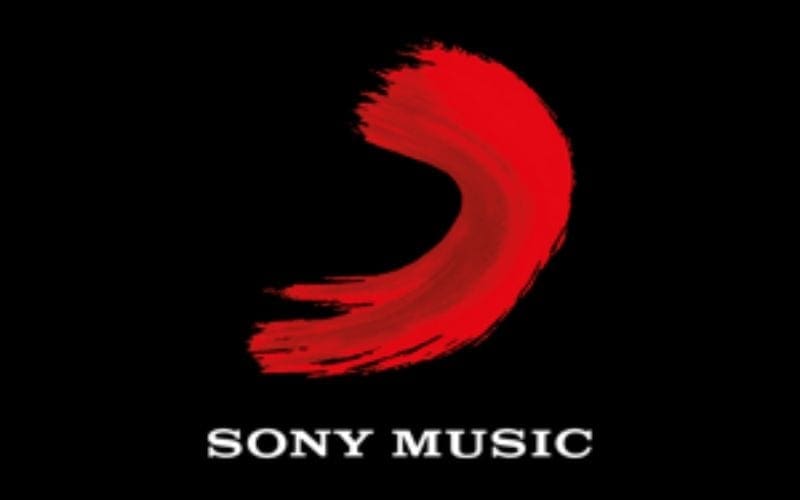
Also known as just ‘Sony Music”, the company was originally founded in 1929 by the name American Record Corporation. In 1938, it was renamed to Columbia Recording Corporation after its acquisition by Columbia Broadcasting System (CBS). After many more restructuring and acquisitions, it got its current name in 1991.
Fun Fact: In 1995, they formed a joint venture between Sony Music Publishing and ATV Music (owned by Michael Jackson). The new publishing company is the largest music publishing catalog in the world, and holds the rights to the whole Lennon-McCartney song catalogue!
Virgin Records
In 1972, the British record label was founded by fellow entrepreneurs Richard Branson, Simon Draper, Nik Powell, and musician Tom Newman. Prior to that, Branson and Powell ran a small record shop called Virgin Records and Tapes in Notting Hill. The label had signed many platinum performers such as the Spice Girls, Mike Oldfield, Janet Jackson, and Gorillaz, among others. In 2012, Virgin Records was acquired by Universal Music Group.
Fun Fact: Richard Branson had mentioned in his autobiography that the name Virgin Records was suggested by a colleague, as they were all new “virgins” to the music industry.
Atlantic Records
One of the biggest music labels in Atlanta and the world, Atlantic Records earned its reputation as one of America’s most important labels in the Jazz, Soul, and R&B genres, and worked with genre giants such as Aretha Franklin, Ray Charles, and Otis Redding. Today, it is part of Warner Music Group and has artists like David Guetta, Bruno Mars, Skrillex, and Ed Sheeran on its roster.
Fun Fact: Atlantic Records founder Ahmet Ertegun helped pioneer Rock ‘n’ Roll by being one of the first music executives to sell music by black artists. He has been part of the Rock ’n’ Roll Hall of fame since 1987.
Independent or “Indie” Music Labels
Then, there are the Independent Labels (or “Indies”). The word ‘Indie’ does not necessarily have anything to do with the music genre. Indie labels started out curating music that was not coming from the majors. They made their distinction by making space for the artists that couldn’t find their place in the ‘Big Six’ in the 80s and 90s, or in the ‘Big Three’ today.
These lines got more blurred over the years. Major artists sometimes touch on sound qualities and genres that might come from an indie space, and vice versa.
Indie Music Label Examples
XL Recordings
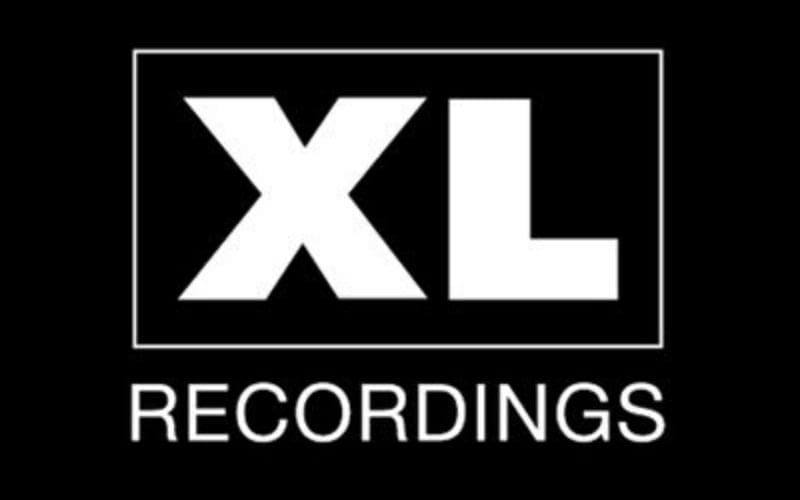
Founded in 1989, XL Recordings set out to represent rave and dance music. In the early 2000s, they expanded their roster to a broad range of artists, such as The White Stripes and Radiohead. Other huge artists that have been associated with XL are Adele and M.I.A.
XL is one of the best British music labels and still finds a good balance between big artists and being on the lookout for upcoming and emerging new talent, the company keeps in touch with its underground roots.
Ninja Tune
One of the best British music labels, Ninja Tune is probably the best example of an indie label! Founded in 1990 with the desire to release experimental electronic music, it has all the characteristics of an indie label. To this day, they have stayed true to their roots. With incredible acts like Bonobo, they have a great reputation in British electronic music, and an amazing roster, too!
Warp
Brian Eno, Aphex Twin, and Boards of Canada are just a few of the amazing artists on Warp’s roster. A true gem when it comes to experimental, electronic music, Warp Records was founded in 1989. They have brought forth many artists (past and present) that changed the game in electronic music. Personally, I think they might have the best collection of artists, and never cease to amaze me!
Now we have learned about the history, similarities and differences of major and indie labels. But how do I get to be represented on one of these amazing labels, you ask? Stay with me!
How To Connect With A Good Music Label

Congratulations, you have been promoted from artist to salesperson! Just kidding…
I know this sounds daunting and not at all fun. Try to see it this way – if you get organized and make the following a part of your daily routine, you will find a well-suited label for yourself and your music.
Find A Good Music Label To Work With
It doesn’t make much sense to reach out to a Jazz label with your Metal album, does it? So, get your research done prior to wildly contacting any label A&R. You can find all the labels online, so make sure to listen to their catalog.
Start with large companies. They might be harder to get into than the smaller labels, but it is well worth a try. Go through the list mentioned above and work your way down. If you have narrowed down the right labels for your music, find out who is in charge of Artist and Repertoire (A&R). A&R’s decide which artists get a chance to be on their roster and which don’t. Find out their names and email addresses so you don’t have to send your preciously crafted email and music to the generic email address. If you have an EPK, send it over too!
Contacting Labels
You will probably reach out to a lot of labels before anybody takes notice, and a huge thing is following up. Please don’t assume that you are emailing a bored A&R rep that is just waiting for your email to show up and give them something to do. In short, nobody is waiting for your music. Some A&R’s that I know get around 200-300 emails daily with new music from new artists.
Be confident, be concise, and be personal in your email so that they take notice. This is key to knowing how to get noticed by music labels. Show that you have done your research and that you know what you are talking about. Include a streaming link to at least 3 tracks that sound fantastic.
Reach Out To Successful Artists
Reach out to some successful artists that you already know who are represented by a label. Ask them for their experience, and give them your music to listen to. Some of them will want to help! Don’t be discouraged by the cagey ones, just check it off as one more lesson learned. Look into some of the Facebook groups and gatherings to talk to artists as well.
Have Your Music Ready
Needless to say, your music should be fully mixed and professionally mastered – the whole shebang! In this very competitive music landscape, you do not only have to be on par sound-wise with what you hear in the top ten charts. You also have to be creative, unique, and steady in songwriting quality. Otherwise, you stand little chance of getting recognized.
Conclusion
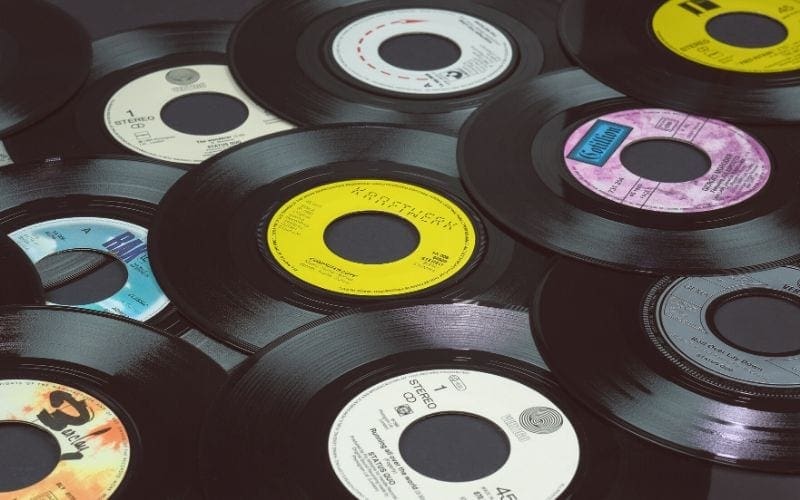
Record labels are broadly divided into major labels and “indie” labels. Major labels are namely the Big Three, Universal Music Group, Sony Music Entertainment, and Warner Music Group. The independents do not only represent music and artists from the independent music genre, but their main differentiator is that they are independent of the majors, and mostly have a more artist-centric approach.
We have talked about a couple of different major and independent labels, the artists they represent, and for some of them, their main genre. In closing, I gave you some practical tips on how to find the right record labels for you and how to best approach them. Your next step is to take what you have learned about labels and put it into action, making it a habit to contact labels on a daily basis to earn your spot on their roster. Make sure to get started today, persevere and be patient!







